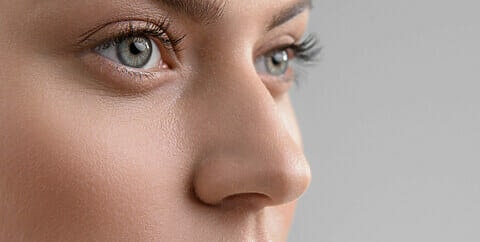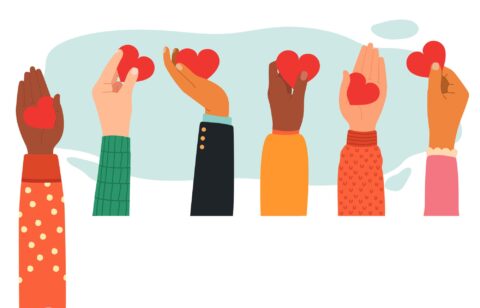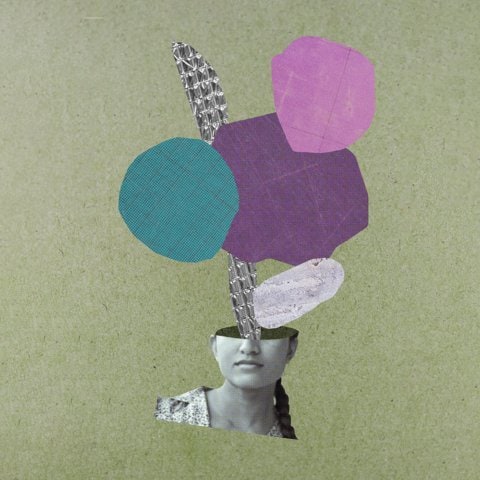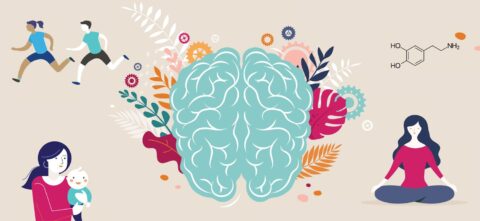Mystery still surrounds the world of dreams, but a sleep scientist tells Hilary Rose that those vivid night-time imaginings serve a serious purpose.
If your ambition is to become an expert on dreams, like Professor Stickgold of Harvard University, then he has some advice: don’t tell anyone.
“At parties I’ve learnt to say I study sleep,” he says on the phone from his home in Cambridge, Massachusetts. “If I say I study dreams, the next six words out of their mouth are invariably: ‘I had the most amazing dream.’”
You see, Robert doesn’t really care that you dreamt that all your teeth fell out. What he cares about is what exactly the brain is doing when we’re asleep and why. Dreams are a part of that and much of the rest is still a mystery. Things have improved enormously since another Harvard professor joked 20 years ago that the only known function of sleep was to cure sleepiness, but still.
If you are curious about why you are having repetitive dreams or you share common themes with the people around you, find out about the 5 most common dreams here.
It’s all in your head
The mystery of sleep is what 75-year-old Robert, a professor of psychiatry at Harvard Medical School, has spent his career studying, after attempting, unsuccessfully, to retire 18 months ago. What purpose do dreams have? Why have we evolved to do something so apparently useless and which many of us never even remember? Dreams are so vivid and memorable, he points out, and we have a sense that they are telling us something. But what?
More of us than ever seem to be asking the same question. There has been a surge in online-search interest in dream and sleep-related questions since Covid-19 struck, while various surveys have revealed that there’s an epidemic of vivid dreaming going on.
“The goal of the dreaming brain is to explore possibilities, to take recent memories or current concerns and wander through them; take them for a spin,” Robert says. “The dreaming brain has complete control and we are pretty much passive players. You can make little decisions, but the larger story is mostly the brain building it on its own.”
Everybody dreams about the same things. Children dream more about animals becoming friends than adults, and the good news about old age is that your dreams become more positive. For everyone else it’s a basic diet of sex, flying, anxiety and teeth falling out, which seems reasonably straightforward, apart from the teeth. Why? Remember when your milk teeth fell out? The endless meals where you had to eat on the other side or else it hurt, the wiggling around with a stubborn tooth hanging by a thread? It’s a low-level trauma, repeated again and again, and the brain remembers.
And while most of us will never stand up naked to give a speech or sit an exam without having done any work, we’ve all turned up somewhere wearing the wrong clothes or worried that we might.
“It’s just anxiety,” Robert says, “what we call small traumas. Every time we do an exam or take a test, there’s a little bit of stress that you can’t control.”
As for the anecdotal rise in Covid-related dreams – or indeed nightmares – Robert points out that something doesn’t have to reach the level of a trauma to take a hold in our subconscious and figure in our dreams. “It can just be persistently worrying about it, like every time you walk out the door,” he says.
He doesn’t hold with Sigmund Freud’s theories about repressed memories and sexual desires, thinking that was probably more to do with a culture of sexual repression in 19th-century Vienna. In his experience, the dream everyone tells him they want to dream isn’t having sex with their favourite film star, it’s flying.
“Why? Because you have a shot at the other when you’re awake! You don’t have a shot at flying. People always ask me, ‘Can you dream about something you haven’t actually done?’ And the answer is, ‘Sure.’ We’ve all seen birds fly. Imagine what soaring would feel like.”
Dreams, Robert says, are evolution deciding that it’s useful to carry on imagining things when we sleep, just as we do when we’re awake. Our brains mull things over. It’s why, after a good night’s sleep, when you wake up you might be able to solve the puzzle that eluded you the previous day or play the tricky section of Chopin that you repeatedly stumbled over. For every two hours we spend awake, he says, taking in new information, forming and storing new memories, our brains have to go “offline” for an hour to figure out what’s going on.
“The evolutionary function of dreams happens right there in that moment, when the brain looks at your dreaming self’s reaction to a scenario – anger, frustration, excitement, terror – and decides right then and there, ‘I’m going to strengthen this connection or I’m not.’ That’s when the business of dreaming gets done.”
Robert has written a book, When Brains Dream: Exploring the science and mystery of sleep, with Professor Antonio Zadra of the Center for Advanced Research in Sleep Medicine at the University of Montreal, Canada. Between them they we’ve all turned up somewhere wearing the wrong clothes or worried that we might.
“It’s just anxiety,” Robert says, “what we call small traumas. Every time we do an exam or take a test, there’s a little bit of stress that you can’t control.”
As for the anecdotal rise in Covid-related dreams – or indeed nightmares – Robert points out that something doesn’t have to reach the level of a trauma to take a hold in our subconscious and figure in our dreams. “It can just be persistently worrying about it, like every time you walk out the door,” he says.
He doesn’t hold with Sigmund Freud’s theories about repressed memories and sexual desires, thinking that was probably more to do with a culture of sexual repression in 19th-century Vienna. In his experience, the dream everyone tells him they want to dream isn’t having sex with their favourite film star, it’s flying.
“Why? Because you have a shot at the other when you’re awake! You don’t have a shot at flying. People always ask me, ‘Can you dream about something you haven’t actually done?’ And the answer is, ‘Sure.’ We’ve all seen birds fly. Imagine what soaring would feel like.”
Dreams, Robert says, are evolution deciding that it’s useful to carry on imagining things when we sleep, just as we do when we’re awake. Our brains mull things over. It’s why, after a good night’s sleep, when you wake up you might be able to solve the puzzle that eluded you the previous day or play the tricky section of Chopin that you repeatedly stumbled over. For every two hours we spend awake, he says, taking in new information, forming and storing new memories, our brains have to go “offline” for an hour to figure out what’s going on.
“The evolutionary function of dreams happens right there in that moment, when the brain looks at your dreaming self’s reaction to a scenario – anger, frustration, excitement, terror – and decides right then and there, ‘I’m going to strengthen this connection or I’m not.’ That’s when the business of dreaming gets done.”
Robert has written a book, When Brains Dream: Exploring the science and mystery of
sleep, with Professor Antonio Zadra of the Center for Advanced Research in Sleep Medicine at the University of Montreal, Canada. Between them they have 40 years of specialisation in dreams and have come up with an acronym for what dreaming brains are doing: NEXTUP (network exploration to understand possibilities).

Sleep on it
Dreams are in essence a planning tool, where the brain processes memories in every possible way. Your sleeping brain can mull over a mountain of information and memories, zoom in on the important bit, file it and let the extraneous detail fade away. It’s why getting a good night’s sleep is important and it’s why your mother had a point when she told you that sleep is the best medicine. “Although,” Robert adds wryly, “I wouldn’t say, ‘Skip the antibiotics.’” It seems that sleep might also have a role in immune function: people who are well rested when they are given a vaccination may produce a better immune response than people who aren’t. This could be why when we’re sick, and our bodies are trying to mount an immune response, we are also sleepy.
The idea that your sleeping brain is in control of you, not the other way round, can seem a bit weird, until you remember that it is when you’re awake too. Your brain runs so much of your everyday existence without you giving it conscious thought: it keeps your heart beating at the right speed, it regulates your breathing and controls your body temperature. It calculates to within a quarter of an inch the drop between the kerb and the street and performs complex calculations in the blink of an eye, such as whether you have time to cross the road before you’re hit by a truck.
The idea that your sleeping brain is in control of you, not the other way round, can seem a bit weird, until you remember that it is when you’re awake too. Your brain runs so much of your everyday existence without you giving it conscious thought.
As Robert points out, if a friend asks you to go away to a hotel for the weekend, you run through the possibilities, you visualise the scenario, just like in a dream: you imagine the journey and the hotel and the location, and what you might do when you get there and how it might make you feel. Yet if dreaming is so valuable, as he argues, why do we forget them?
“Because once the dream is over, the brain has done its job. If we remember it, that’s a freebie. Evolution doesn’t care if we remember, but it turns out that we do.”
If you want to remember your dreams, Robert has tips. People who sleep soundly all night and are woken by an alarm won’t remember their dreams. You need to wake up during the night – so drink plenty of water before you go to bed – and when you wake, don’t immediately move. Memories at this stage of the sleep process are fragile, and any sensory stimulation – an alarm clock, or reaching for a pen and paper to write your dream down – will dislodge them.
Sleep has so many purposes of which we’re still unsure. We know that 90 percent of growth-hormone secretion in children happens when they are asleep, Robert says. Yet it’s possible that obesity could be linked to sleep deprivation because it messes with your body’s ability to regulate insulin. He also wonders if sleep has a cardiac function because once in a while the sleeping brain makes the heart beat extremely fast for no discernible reason. “It might be that it’s exercising the system in ways it can’t during the day. If it did, you would panic and think something was wrong, and in fact it would be.”
In other words, while we sleep the brain might be giving the heart a kind of warrant of fitness test. Yet even the sleeping heart isn’t straightforward. If Robert wakes up a patient whose blood pressure and heart rate have suddenly soared, you might imagine that they were having a terrible nightmare. In fact, he has found that they are as likely to say they were on a beach in the Bahamas. As for him, he still loves his dreams – “love them!” – which include flying like the rest of us, but in his case taking bigger and bigger strides, until he can cross a whole block in one leap. His wife, however, won’t tell him about her dreams – she thinks he’s prying.
“All those things that go through your brain before you fall asleep – everything our boss said, or that we need to work on – that’s what we dream about. It reviews the day and figures out what it needs to process. Your brain takes that time while you’re sleeping to get the ducks in a row.”
ARTICLE BY THE TIMES/NEWS LICENSING








